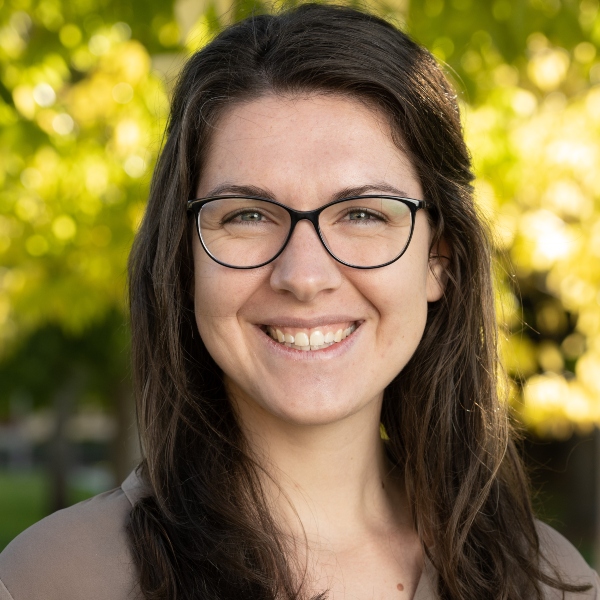Humility: The Key Ethical Consideration at the Intersection of Science Communication and Trust
“You should not try to just induce trust – you should deserve trust.” In this poignant quote, Institute for Science & Policy 2023 Symposium keynote speaker Heather Douglas highlighted the importance of scientists critically examining themselves, the history of their field, their evidence, and their values in order to build trust with diverse publics. Especially in the face of uncertain and evolving science, people must consider consensus, criticism, and communication carefully.
This excellent kick-off to the symposium brought forth important ethical considerations at the intersection of scientific uncertainty and trust. As a researcher in the fields of public health communication and science communication education, I consider these topics consistently and am always aiming to learn more. There are many wonderful thought leaders and researchers in the fields of science communication, science education, sociology, philosophy, ethnic studies, psychology, and more – including those who we heard from in the symposium – who have provided helpful theoretical frameworks and data around these issues. In their article “Untangling Trustworthiness and Uncertainty in Science”, science educators Covitt and Anderson highlight how uncertainty due to lack of scientific consensus can lead to the perception of untrustworthiness of science. They highlight the concept of epistemic hubris, wherein scientists refuse transparency about uncertainty in their science and claim the superiority of their favored claims. Conversely, in their article “A Framework to Guide Undergraduate Education in Interdisciplinary Science”, science educators Tripp and Shortlidge highlight the need for disciplinary humility to facilitate collaboration between individuals of different expertise and experience to solve complicated socioscientific issues.
Humility and inclusivity are critical in ethical science communication.
What happens when scientists have epistemic hubris instead of disciplinary humility? This can lead to issues with communication of scientific uncertainty. Symposium panel member Maya Goldenberg highlighted that when scientists are not brave enough to be humble about the limits of their science during early claims, this can lead to long-term lack of trust when the original claims are shown to be not entirely accurate. This was especially an issue during the early communication about COVID-19 vaccines. My colleagues and I have also examined this question of what happens when scientists lack humility in the context of addressing misinformation. We recently found that when scientists hold a deficit view of the public, they are less willing to engage in relational conversations to address misinformation even when they are concerned about the impacts of misinformation on society. That is, when scientists believe that people in the public are ignorant of science, these scientists sit in a place of frustration at those people for believing misinformation while simultaneously refusing to actually engage in conversations with these people. This leads to a sort of stalemate, where scientists’ mindset can limit the flow of science communication. We must overcome this deficit view towards people and towards science communication.
How do we overcome this deficit approach? Symposium panel member Mónica Feliú Mójer directs a center for inclusive science communication in Puerto Rico. There has been a push amongst some science communication researchers, practitioners, and educators towards inclusive science communication, which values public participation and diverse perspectives. During the panel, Feliú Mójer highlighted the need for redressing injustices caused by science and facing the issues of power and dominant perspectives in science. She explained how we must reflexively examine our own potential role in these harms. She and other panel members highlighted that the deficit model of science communication is not only unethical but also ineffective. Providing further facts to convince people without engaging in values and relationships will not work. Instead, we must also consider people’s identities, values, and experiences when we discuss socioscientific issues with them. Once again, humility and inclusivity are critical in ethical science communication.
Too often I see scientists countering “anti-science” claims with “pro-science” claims, or asking people to “just trust science” and “believe scientists”.
Unfortunately, the continual practice and teaching of the deficit model of science communication hinders growth. We all must continue to consider our mindset towards others and strive to be more humble in our science communication. This humility also involves recognizing that Western science isn’t the only or best way of knowing, and that learning from the humanities, from Indigenous science, and from other perspectives actual makes scientists and science better. Symposium panelist Evan Thornburg highlighted the problems with scientism, or the belief that science can solve all problems. They encouraged us to remember the limits of science. Similarly, Symposium keynote speaker Faith Kearns highlighted the importance of humility for relating in an ethical way, listening justly, and being comfortable with conflict during conversations with people of diverse expertise.
During the Q&A session after her keynote talk, Douglas reminded us of the importance of not being defensive. Too often I see scientists countering “anti-science” claims with “pro-science” claims, or asking people to “just trust science” and “believe scientists”. As a scientist, I ethically shouldn’t be frustrated at people for blindly trusting misinformation if I want them to instead blindly trust the institution of science. Also, I ethically shouldn’t expect people to trust me as a scientist if I am unwilling to see them as intelligent people with worthy values, concerns, and perspectives. Instead of such imbalanced and arrogant assumptions, ethics demand that I should engage in conversations with people from a place of humility, curiosity, and cooperative learning. When I approach science communication with the goal of learning as much from my audience as I hope they learn from me, then we all can synergistically grow and solve complex issues in a more ethical and trust-building way.
Dr. Nicole Kelp is an Assistant Professor at Colorado State University. At CSU, she is involved in developing and teaching the medical science curriculum for the School of Medicine, providing content expertise in genetics/biochemistry, hematology, endocrinology and reproductive biology, and pathology, especially cancer biology. She serves as the Chair of the Medical Science Content Directors for the CU School of Medicine, helping lead curriculum development efforts. Additionally, Dr. Kelp performs research in science communication, both in science communication education and public health communication.

Assistant Professor, Colorado State University
Disclosure statement:
The Institute for Science & Policy is committed to publishing diverse perspectives in order to advance civil discourse and productive dialogue. Views expressed by contributors do not necessarily reflect those of the Institute, the Denver Museum of Nature & Science, or its affiliates.
